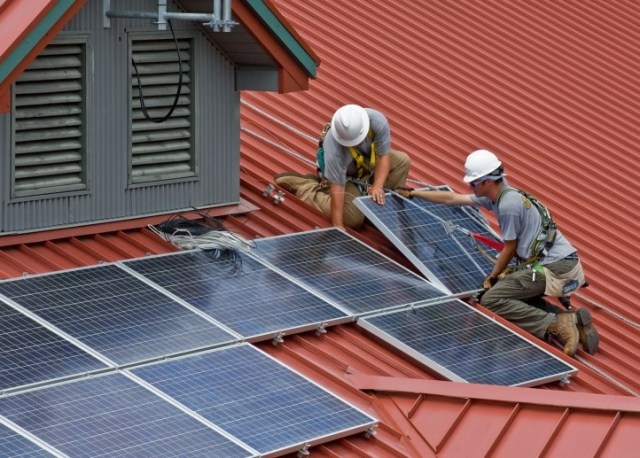With a rapid technological progress that we are witnessing today, the skills in renewable energy are among the most wanted. As “The Guardian,” states, in 2016 the solar power alone grew by 50%. Such a growing demand offers new jobs and requires professionals on different levels, from production to the finance. Taking this into account, it is the right time to think about a proper education. Below you may find some tips on applying for a renewable energy degree or a green career:
1. Be job oriented
Renewable energy is not a simple notion. It includes branches with apple and orange technologies. For example, wind and solar power, hydropower or biomass energy. To gain benefits from your education in future, it is important to understand and define what excites you the most, where you have already some knowledge or experience. It is important to invest a good portion of time and to search for the information that helps to draw a clear picture of where will you find yourself after the graduation.
What is more to your liking, green building or energy efficiency? Do you classify yourself as a project manager, a field engineer or a production designer? Determining your sphere of interests should be your first step towards a degree, so get yourself involved in the world of renewable power and start receiving the related news. Professional organizations (like IRENA), specialized literature and communities of those, already in the profession are at your disposal.
2. Choose an appropriate degree
Considering your sphere of interests, the next step would be to make a list of already obtained education and knowledge. Do you have any renewable energy certificates? Have you participated in the projects with renewable energy grants or do you have an experience in any other initiatives? Your aim is to obtain the new skills. Repeating the already learned things might be useful but not in the domain that changes quicker than issued manuals.
Thus, if you have a bachelor’s degree in the field, closely related to the domain you want to jump in, a set of certifications or training might be a good starting point. Say, civil engineers can pass the Green Associate Exam. It would be more efficient than to apply for a renewable energy bachelor’s degree.
If you do not want to become a certified specialist and just want to start working as soon as possible and under supervision, try to find an Associate degree. If you are already working in the field and would like to become a manager or to obtain a specific knowledge, you should search for the Master’s degree offerings. And if you would like to teach others, a Doctorate is for you.
3. Make a list of the available offers
When you have decided already what kind of degree you need, make a list of courses you would like to apply for. Information on the international offers can be found at the general portals like Studyportals, on more specific sites like Degree Days or directly on the sites of the universities. The competition on the most prominent programs is high, and it is wise to apply for several universities or courses.

While applying for international programs, take into account the peculiarities of the local rules. Thus, in China, there are age limits. Only people till 30 may apply for a Bachelor’s degree and till 40 for Master’s and Ph.D. In most of the UK universities, the applications shall be provided through UCAS or UKPASS systems. In Switzerland, the remote certificates are not recognized.
4. Start in advance
To be successful, you should always keep in mind that gathering of all the necessary information and group of documents and submit an application is a time-consuming thing. As a rule, the preparation should start a year in advance.
For US universities it is sometimes recommended to start two years in advance and to contact the assisting companies or university advisors prior one year. However, some educational institutions may state that the extremely early dates on the documents may result in application withdrawal. Needless to say how important it is to read the requirements carefully.
Most of the international educational programs require prior testing, like TOEFL, IELTS, GMAT, etc. Reserve time to pass the tests and some spare time to re-take them, if needed. Do not forget about such bureaucratic things as translation and notary approval of the documents, apostils, and procedure of document verification, when the case.
5. Make people know why do you need a degree
When you are at the stage of composing the application documents, remember to make them personal as much as possible. Usually, when you work on assignment and want to spare time, you may google: “Is there a website that will write my essay for me.” At this stage, your main target is to show why you need a degree. To put it more philosophical, how will the society benefit from your degree in future?
While applying for the renewable energy degree, it is better to spend efforts on writing the motivation letter or a personal statement by yourself. Talk to a person who will write a reference letter for you, he or she should understand your aim in applying to make the respective accents and highlight your intentions. Adding your personality to the application is one of the most effective competition advantages.
Hope the above information was useful and soon you will need to read an article on how to survive your first year of college.
And to sum up, the analytics predict 24 MLN jobs in the renewable energy sphere by 2030. It is worth obtaining a degree.



2 thoughts on “5 Tips for Applying for a Renewable Energy Degree”